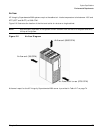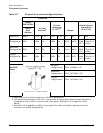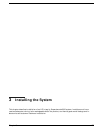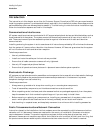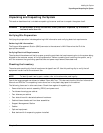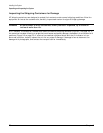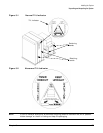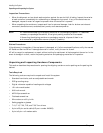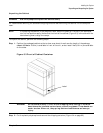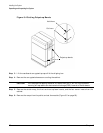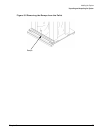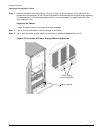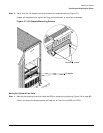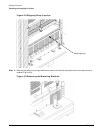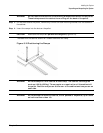
Chapter 3
Installing the System
Unpacking and Inspecting the System
80
Inspection Precautions
• When the shipment arrives, check each container against the carrier's bill of lading. Inspect the exterior
of each container immediately for mishandling or damage during transit. If any of the containers are
damaged, request the carrier's agent be present when the container is opened.
• When unpacking the containers, inspect each item for external damage. Look for broken controls and
connectors, dented corners, scratches, bent panels, and loose components.
NOTE HP recommends keeping the shipping container or the packaging material. If it becomes
necessary to repackage the cabinet, the original packing material will be needed.
If discarding the shipping container or packaging material, dispose of them in an
environmentally responsible manner (recycle, if possible).
Claims Procedures
If the shipment is incomplete, if the equipment is damaged, or it fails to meet specifications, notify the nearest
HP Sales and Service Office. If damage occurred in transit, notify the carrier as well.
HP will arrange for replacement or repair without waiting for settlement of claims against the carrier. In the
event of damage in transit, retain the packing container and packaging materials for inspection.
Unpacking and Inspecting Hardware Components
This section describes the procedures for opening the shipping container and unpacking and inspecting the
cabinet.
Tools Required
The following tools are required to unpack and install the system:
• Standard hand tools, such as a adjustable-end wrench
• ESD grounding strap
• Digital voltmeter capable of reading ac/dc voltages
• 1/2-inch wrench/socket
• 9/16-inch wrench
• #2 Phillips screwdriver
•Flathead screwdriver
• Wire cutters or utility knife
• Safety goggles or glasses
• T-10, T-15, T-20, T-25, and T-30 Torx drivers
• 9-pin to 25-pin serial cable (HP part number 24542G)
• 9-pin to 9-pin null modem cable




